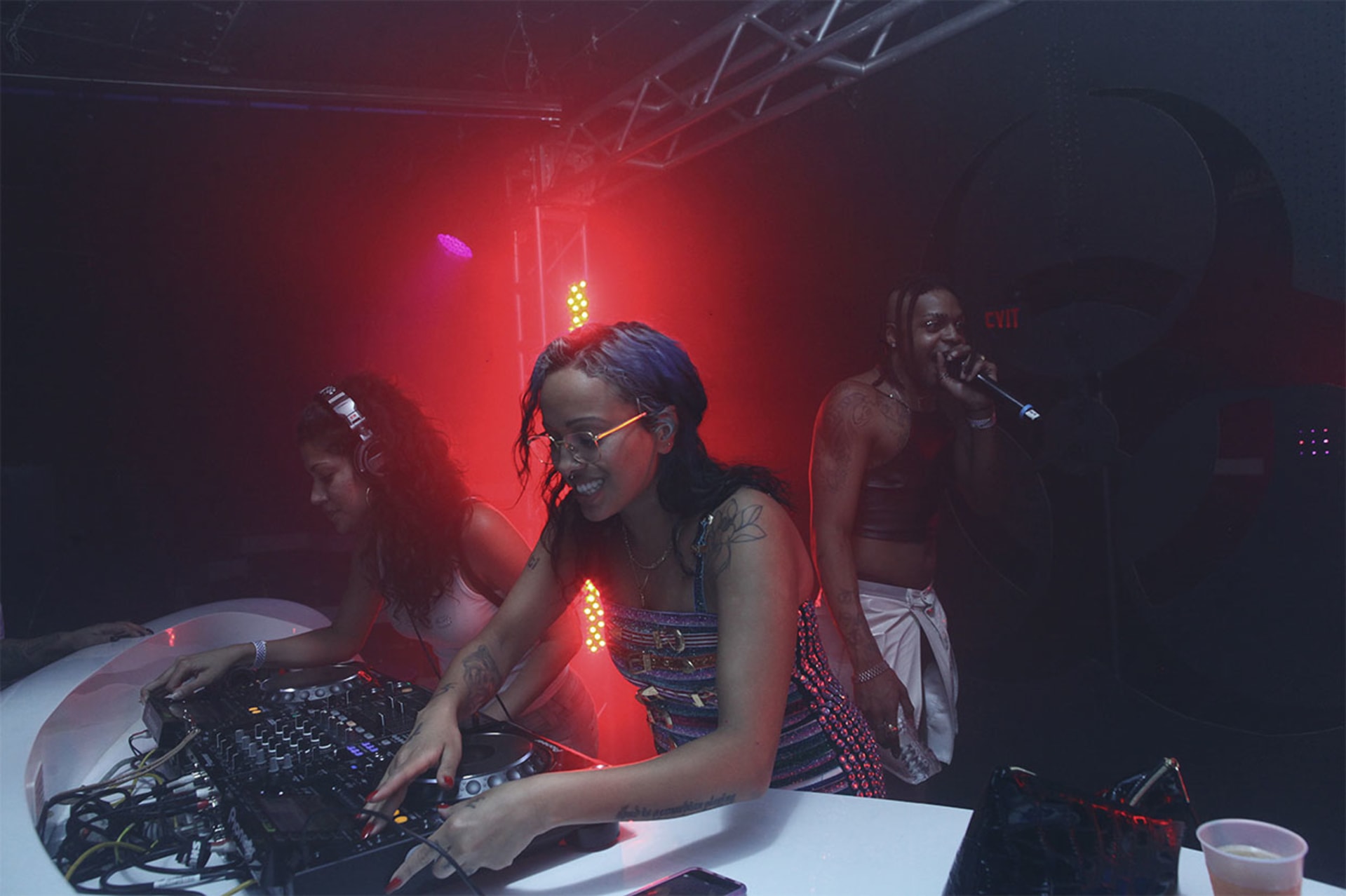
Venus X On The Origins And Future Of GHE20G0TH1K
In 2009, my friend was working at a bar and gave me an off-day monthly. At first it was called Deathwish, but people were calling it Ghetto Goth because that was what we were using to describe it. By the fourth month, it was Ghetto Gothik. It went through a few different spellings—it’s a lot about disruption and being elusive, not wanting people to find us online. Why would we make it easy to spell? I was young, brown, growing up in New York and gay. When you grow up in any of the black or Latino neighborhoods and you’re gay, everybody knows each other. But there were local punks, steampunks and hardcore kids who’d DJ’ed with me, too. So we kind of created a crossroads where everybody could meet up, which didn’t exist before.
It was a really open format. Within six months we started doing parties at a bar in the Lower East Side, maybe 160 capacity in the basement. They were the best parties. It was me, [Hood By Air designer] Shayne [Oliver], Physical Therapy, a lot of people who are now on Fade To Mind and a lot of New York all-star instrumentalists, like Dutch E Germ from Gang Gang Dance. Since then we’ve been on and off in both disgusting and great warehouses, and sometimes Santos [Party House] and SOB’s.
Musically, the party says two things specifically about our youth now: it’s very local and it’s also very Internet. So it’s from here but it’s also from nowhere. Everyone can co-exist here in New York because it’s so fast-paced and crazy. No one is going faster than us. So the music is local, like vogue and Jersey club. But at the very beginning it was actually punk and industrial, really dark hip-hop and ’90s Memphis murder music, like Three 6 Mafia. There was a time when we had a lot of great gothic rap that no one ever called goth, and it was reinterpreting what that was. We were trying to be obscene, we were trying to be fixers of history, we were trying to say “Fuck you” to a lot of people. This aggressive reinterpreting is now going into vogue culture, Jersey club, kuduro and juke.
I don’t see the problem with understanding women’s history and sexual politics and also playing rap music. When you’re living it, it’s a much more dynamic thing. I was really militant when I was in my late teens. I was studying African studies, more specifically the political economy of race. I was squatting, hanging out with kids who were extremely radical. Then, by the time I was 23, I had gone back to school. I developed more into an adult that could sustain the pressures of capitalism and I wasn’t just angry. So how do I actually participate in the world that I like, which is a fashionable world, a world of complex social dynamics where sexuality is not just a thing of power play and abuse? Part of it is avoiding or working around male culture: a male-dominated nightlife, male-dominated fashion industry, male everything.
Now the party has been on and off for a few years. When there are great venues, we’re not going to stop a party. But when there are no venues and shit is hitting the fan, you realize some people are just using the party for the aesthetics. They don’t get that it’s about people having authorship over their youth experience. No celebrity can co-opt that. It’s not allowed, which is why GHE20G0TH1K was shut down for a few months when the whole Rihanna thing happened [Rihanna, who never attended the party, hashtagged #ghettogoth in a series of Instagram posts over a year ago].

This city is about money. It’s about greed. I’m not going to fight a celebrity, and I’m also not going to fight a system that’s organized in the service of rich people and corporate situations. Kids getting this organized to make an impact in so many different genres, from so many different backgrounds, doesn’t happen very often. And Rihanna is just an archetype for the whole system, which constantly says, “I’m going to take it from you even though you created it.” And it’s just like, “No, it’s 2015. We’re not doing this shit again.”
I will not be throwing any more #ghettogoth parties or djing. @rihanna thank you for teaching me a lesson. GOODBYE WORLD
— VENUS X (@VENUSXGG) 12. Mai 2014
This article originally appeared in the Summer 2015 issue of Electronic Beats Magazine. Click here to read more from this issue. The cover photo is by Erez Avissar: Venus X (center) flanked by Nguzunguzu’s Asma Maroof (left) and guest MC Ian Isiah.
Published August 04, 2015.
